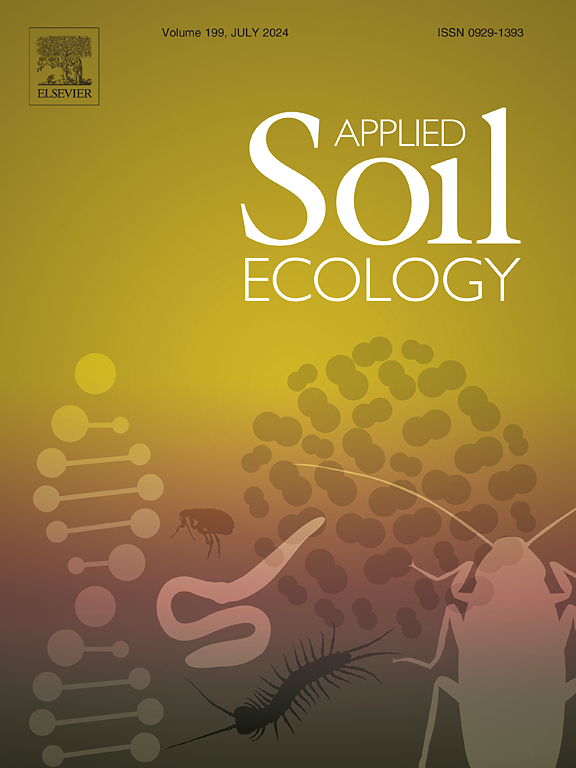Microbial community resistance is associated with soil carbon degradation under warming condition in dryland agroecosystems
IF 5
2区 农林科学
Q1 SOIL SCIENCE
引用次数: 0
Abstract
Soil microorganisms play a critical role in regulating carbon cycling, particularly under the influence of climate change. Understanding the relationship between the ecological stability of belowground communities and soil carbon cycling under warming conditions is essential for predicting global soil carbon storage. In this study, we conducted a large-scale soil microcosm experiment using 25 paired maize and rice ecosystems distributed along a latitudinal gradient across China to explore how microbial communities in these two cropping systems respond differently to climate warming and how these responses affect soil carbon cycling. In maize soils, we observed that microbial diversity resistance was positively correlated with mean annual temperature (MAT). Moreover, both microbial diversity resistance and community resistance were higher at lower latitudes in maize soils. These low-latitude maize soils also exhibited greater microbial co-occurrence network stability and stronger phylogenetic conservation under warming conditions. However, these patterns were not observed in rice soils. Interestingly, in maize soils, community resistance was negatively correlated with the variation in organic carbon degradation-related functions under warming. Furthermore, the original organic carbon content in these soils was positively correlated with microbial community resistance and negatively correlated with functional variation in organic carbon degradation. Taken together, our results highlight the critical role of habitat in shaping microbial responses to warming, and suggest that soil microorganisms can regulate their metabolic processes to mitigate soil carbon loss under global change scenarios.

增温条件下旱地农业生态系统微生物群落抗性与土壤碳退化有关
土壤微生物在调节碳循环中发挥着关键作用,特别是在气候变化的影响下。研究变暖条件下地下群落生态稳定性与土壤碳循环之间的关系,对预测全球土壤碳储量具有重要意义。本研究以中国25个玉米和水稻配对生态系统为研究对象,进行了大规模土壤微观环境试验,探讨了这两种作物系统中微生物群落对气候变暖的不同响应及其对土壤碳循环的影响。在玉米土壤中,我们观察到微生物多样性抗性与年均温度(MAT)呈正相关。低纬度玉米土壤微生物多样性抗性和群落抗性均较高。这些低纬度玉米土壤在变暖条件下也表现出更大的微生物共生网络稳定性和更强的系统发育保守性。然而,这些模式在水稻土中没有观察到。在玉米土壤中,群落抗性与变暖条件下有机碳降解相关功能的变化呈负相关。土壤原始有机碳含量与微生物群落抗性呈显著正相关,与有机碳降解功能变异呈显著负相关。综上所述,我们的研究结果强调了栖息地在塑造微生物对变暖的反应中的关键作用,并表明土壤微生物可以调节其代谢过程,以减轻全球变化情景下的土壤碳损失。
本文章由计算机程序翻译,如有差异,请以英文原文为准。
求助全文
约1分钟内获得全文
求助全文
来源期刊

Applied Soil Ecology
农林科学-土壤科学
CiteScore
9.70
自引率
4.20%
发文量
363
审稿时长
5.3 months
期刊介绍:
Applied Soil Ecology addresses the role of soil organisms and their interactions in relation to: sustainability and productivity, nutrient cycling and other soil processes, the maintenance of soil functions, the impact of human activities on soil ecosystems and bio(techno)logical control of soil-inhabiting pests, diseases and weeds.
 求助内容:
求助内容: 应助结果提醒方式:
应助结果提醒方式:


